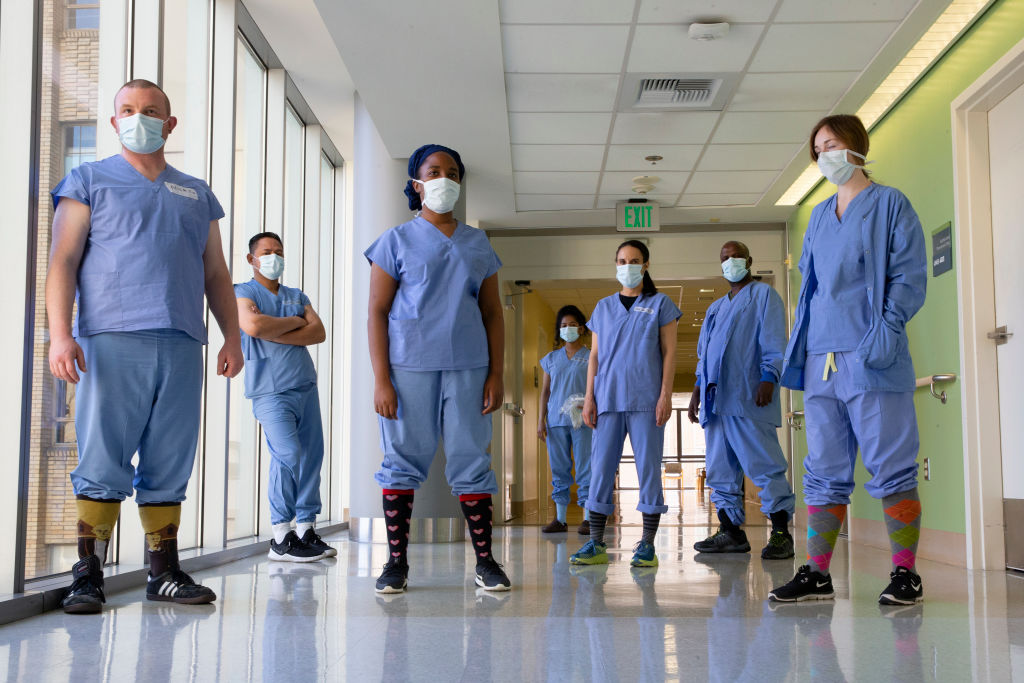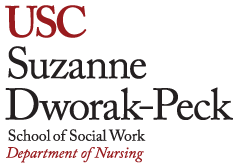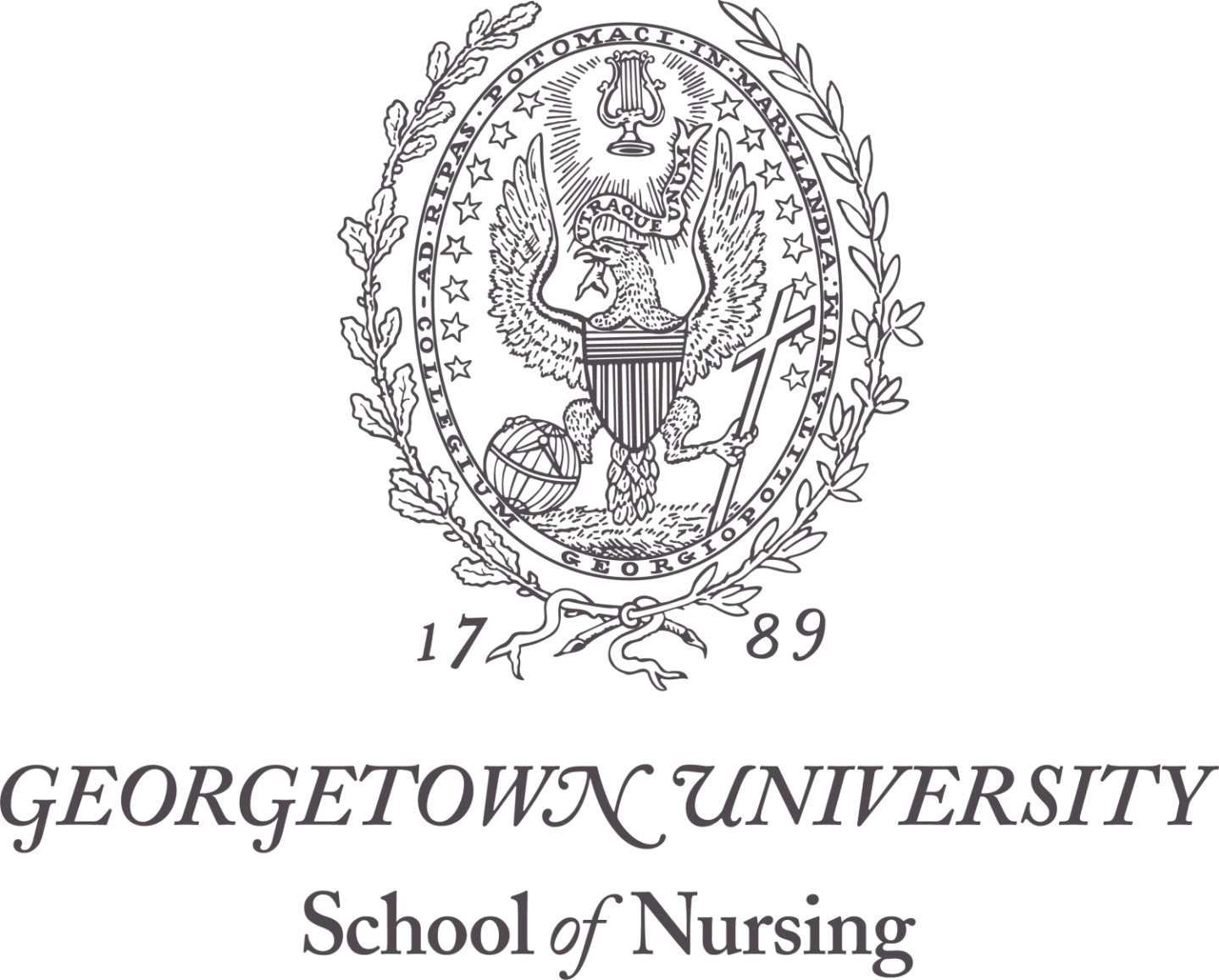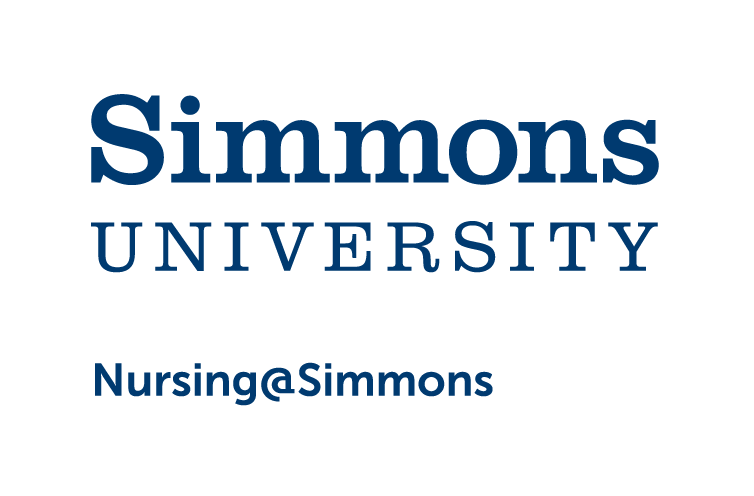Perhaps no professional field was impacted more dramatically by the pandemic than nursing. Not only did nurses around the country need to do their best to keep themselves safe and healthy—after all, there was no option to work from home, for most of them—but they were also on the frontlines, taking care of millions of patients. It was a long, dangerous, and traumatic experience for many nurses, and as such, many of them ultimately left the profession over the past few years.
During 2021, health care and social service workers quit at the highest rate in 20 years, according to data from the Bureau of Labor Statistics. What’s more, industry insights show that half of nurses have considered leaving the profession, largely because of low wages and an inability by hospitals and clinics to hire enough staff.
That’s opened up new opportunities for prospective nurses—a career path that tends to pay relatively well. But interestingly enough, enrollment in various master’s degree programs in nursing (MSN) around the country show a seesaw dynamic, rather than a straight influx of new students. Some schools have seen their numbers shoot way up, while others have seen a decline in the number of MSN students.
For example, data collected by Fortune shows that Ball State University’s nursing program saw enrollment fall 53% between fall 2019 and fall 2021. Conversely, the University of South Carolina-Upstate saw its program’s headcount grow 380%.
Beyond the question of “why” there are such wide discrepancies in graduate degree programs, Fortune also set out to learn how nursing programs are dealing with uncertainty in terms of enrollment. Here’s what two program deans told us.
Why nurses are—and aren’t—enrolling in MSN programs
Despite the drop in enrollment at some schools, there has been an uptick in enrollment at the more than 1,000 nursing schools in the U.S., according to data from the American Association of Colleges of Nursing (AACN)—at least at the baccalaureate level, which saw a 3.3% increase in enrollment in 2021. However, enrollment in master’s programs and Ph.D. programs fell by 3.8% and 0.7%, respectively, the data shows.
There are a host of reasons for that decline, according to Leann Horsley, dean of the East Tennessee State University College of Nursing, which has seen a drop in enrollment in its graduate nursing programs. But in general, the pandemic’s toll on working nurses has, in turn, affected schools.
“Look at our grad students—they’re primarily female, and during the pandemic, the ones in grad school already have a license and are out working,” Horsley says. “There were all sorts of mandatory overtime for nurses, and it really impacted their ability to maintain work-life balance. Previously, with any extra time they had, they’d go to school. But there just isn’t time [now] to balance work, family, and school.”
What’s more, ETSU’s nursing school lost individuals—both students and faculty members—due to vaccine mandates and a lack of clinical placement sites, Horsley says.
While the pandemic may have been the catalyst in decreasing enrollment at some schools, it may have also led to increased admissions at others. A temporary lowering of admissions standards to some schools brought in more students, according to Shirleatha Dunlap, dean of Mary Black College of Nursing at USC Upstate.
“GRE and SAT scores were suspended, and schools broadened their admissions,” she says. “Students seized those opportunities. That’s one of the reasons you’re seeing more enrollments at some schools. Students got into schools they may not have otherwise gotten into.”
Why a decline in enrollment could be beneficial to MSN students
While some schools have seen a falling number of matriculating students and others a rising number, there are pros and cons to both scenarios. For instance, bigger cohorts may help schools secure additional funding to expand their operations. But smaller classes also give students more one-on-one time with instructors and individual attention.
“When there are fewer students, there’s more individual time, and it decreases the student-to-teacher ratio, which is always beneficial for students,” says Horsley. Though students, in the short term, may benefit from more attention from instructors and teachers while working through their programs, Horsley says that she is ultimately focused on attracting more students to her program, helping address the shortage of nurses working around the country.
“We are charged with increasing the number of nurses in the pipeline to the workforce, and that’s what we’re going to try to do,” she says.
Dunlap, too, notes that there are advantages to smaller classes, and says that students may find more bang for their educational buck by looking at smaller programs, where those benefits can be even more magnified.
“Many students miss the value that smaller institutions have,” Dunlap says. “The faculty knows who you are. You’re not one of 160 students. Small and medium-sized schools offer great value, with more one-on-one experience.”
Check out all of Fortune’s rankings of degree programs, and learn more about specific career paths.








